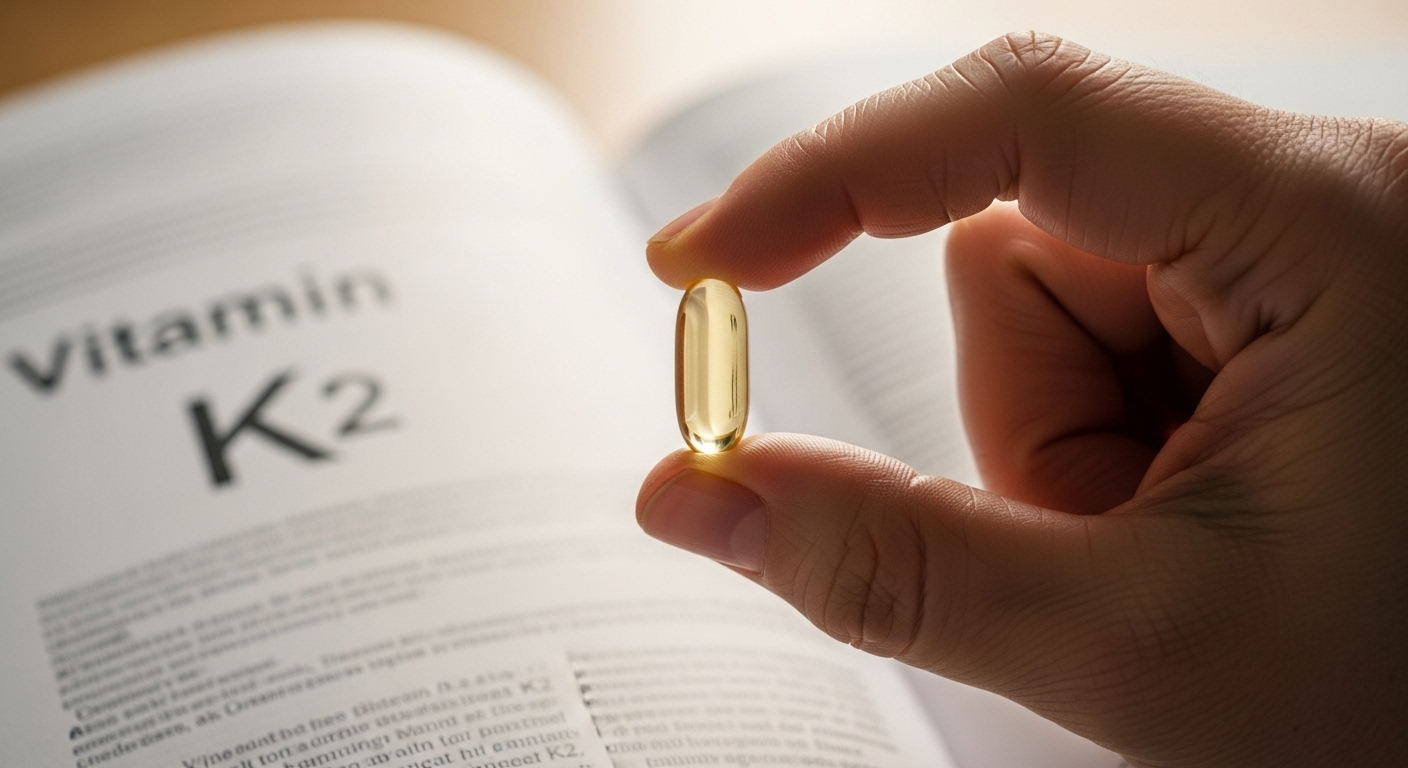Vitamin K2: The Unsung Hero of Bone and Heart Health
Vitamin K2, a lesser-known nutrient in the vitamin K family, has emerged as a critical player in bone and cardiovascular health. Often overshadowed by its more famous cousin, vitamin K1, K2 has distinct properties that set it apart in the world of nutrition. This fat-soluble vitamin, discovered in the 1930s, has only recently garnered significant attention from researchers and health professionals. As our understanding of its role in the body grows, vitamin K2 is proving to be an essential component in maintaining skeletal strength and arterial flexibility. Its unique ability to direct calcium to bones while preventing its accumulation in arteries has sparked interest in its potential to address two major health concerns: osteoporosis and heart disease.

There are several forms of vitamin K2, categorized by the number of isoprenoid units in their side chains. The most common forms are MK-4 and MK-7. MK-4 is found in animal-based foods and can be synthesized by the body from K1. MK-7, on the other hand, is primarily produced by bacterial fermentation and is found in natto, a traditional Japanese food made from fermented soybeans.
Vitamin K2’s Role in Bone Health
One of the most significant functions of vitamin K2 is its role in bone metabolism. It activates osteocalcin, a protein that helps bind calcium to the bone matrix. Without adequate K2, osteocalcin remains inactive, leading to reduced bone mineralization and increased risk of fractures.
Several studies have demonstrated the positive effects of K2 supplementation on bone health. A landmark three-year study published in the journal Osteoporosis International found that postmenopausal women who took vitamin K2 supplements experienced significantly less bone loss compared to those who didn’t. Furthermore, a meta-analysis of clinical trials showed that K2 supplementation reduced the risk of vertebral fractures by 60% and hip fractures by 77%.
Cardiovascular Benefits of Vitamin K2
While calcium is essential for bone health, its accumulation in arteries can lead to arterial calcification, a major risk factor for cardiovascular disease. This is where vitamin K2’s unique properties come into play. K2 activates matrix Gla protein (MGP), which inhibits calcium deposition in soft tissues, including blood vessels.
The Rotterdam Study, a large-scale prospective study involving over 4,800 participants, found that individuals with the highest intake of vitamin K2 had a 57% lower risk of dying from heart disease compared to those with the lowest intake. Additionally, they had a 52% lower risk of severe aortic calcification. These findings suggest that K2 may play a crucial role in preventing cardiovascular disease by maintaining arterial flexibility and preventing calcium buildup.
Synergy with Vitamin D and Calcium
Vitamin K2’s effectiveness is closely tied to its interactions with vitamin D and calcium. While vitamin D enhances calcium absorption, K2 ensures that the absorbed calcium is directed to the bones rather than accumulating in soft tissues. This synergistic relationship highlights the importance of balanced nutrient intake for optimal health.
Recent research has shown that combining vitamin K2 with vitamin D and calcium can lead to better bone density improvements compared to supplementation with calcium and vitamin D alone. This has led to the development of combination supplements that aim to provide a more comprehensive approach to bone health.
Dietary Sources and Supplementation
While vitamin K1 is abundant in leafy greens, K2 is found in smaller quantities in a limited range of foods. The richest dietary source of K2 (specifically MK-7) is natto, which contains up to 1000 micrograms per 100 grams. Other sources include certain cheeses (particularly those made with bacterial fermentation), egg yolks, butter from grass-fed cows, and organ meats.
Given the limited dietary sources, many people may not consume adequate amounts of K2 through their diet alone. This has led to increased interest in K2 supplementation. Supplements are available in various forms, including MK-4 and MK-7. MK-7 is often preferred due to its longer half-life in the body, allowing for sustained levels with once-daily dosing.
Future Research and Potential Applications
As interest in vitamin K2 grows, researchers are exploring its potential benefits in other areas of health. Preliminary studies suggest that K2 may play a role in insulin sensitivity, cognitive function, and even cancer prevention. However, more research is needed to confirm these potential benefits and establish optimal dosing guidelines.
One area of particular interest is the role of K2 in dental health. Some studies have shown that K2 may help in the remineralization of teeth and the prevention of dental caries. This could lead to new approaches in dental care and cavity prevention.
Additionally, researchers are investigating the potential of high-dose K2 supplementation in treating existing arterial calcification. If proven effective, this could provide a new therapeutic option for individuals with advanced cardiovascular disease.
In conclusion, vitamin K2 represents a fascinating area of nutritional science that is only beginning to be fully understood. Its unique properties and potential health benefits make it a nutrient to watch in the coming years. As research continues to unfold, K2 may emerge as a key player in preventive health strategies, particularly in the areas of bone and cardiovascular health. While more studies are needed to fully elucidate its effects and establish optimal intake levels, the current evidence suggests that ensuring adequate K2 intake, either through diet or supplementation, may be an important consideration for overall health and wellbeing.




